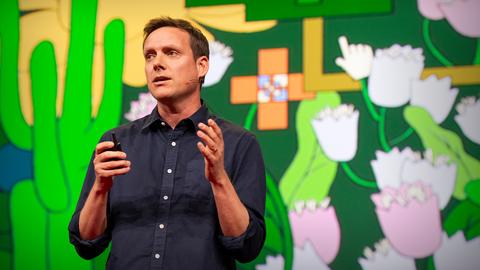
As the recent success of NBC's "The Office" shows, the trials and tribulations of office life have become more popular than ever. But what is it about today's work environment that provides such fodder for comedy?
We spoke with Michael Malice and S. Morgan Friedman, creators of Overhear At The Office, about the travails of working in an office these days, and why humor makes an effective coping mechanism for everyday job stress.
Q: How does your site work?
Michael Malice: It's not very complicated. People hear things in offices, in their cubicles, all the time, and they send them in to us, and we put it up. And everyone can share their pain.
Q: So what's the purpose?
S. Morgan Friedman: The purpose is to share the experience of what it is like to work in an office environment, with a particular focus on the dynamics between the different people. How bosses talk to everyone, and how ridiculous they sound from the outside.
Malice: I think it also gives you the sense of people having to bite their tongue while surrounded by idiocy.
Q: Is that what lends humor to office life?
Malice: The major subtext is an extreme level of irony. The person in the front of the room often does not have the right or the ability to be at the front of the room. The other level of irony is that they think they do deserve it. It is several steps removed from reality, where this person should be a janitor, but because they have a fancy office and are dressed a certain way, somehow they think their head isn't up their ass. I think that's what strikes a chord with people.
Friedman: It's not just the bosses. A lot of the humor comes from the way everyone in the office deals with it. For example, a VP says to an IT guy, "Have you installed Google on my computer yet?" And the IT guy responds, "Just yesterday." The humor from that comes not just from the boss not knowing that Google doesn't need to be installed, but the IT guy who doesn't want to deal with the problem.
Malice: What's funny is that it is a very universal story. Every IT guy on Earth has a story of dealing with a higher-up who asks a stupid question, and they just smile and give an answer just to shut them up. This is happening right now, somewhere -- I guarantee it.
Q: So sharing such office humor is a good coping mechanism?
Malice: Overheard in the Office updates 9 to 5, hourly, because I remember what it's like being a temp and staring at the clock and doing the math -- I got two hours and 20 minutes left. It's our way to help pass the monotony. Because, in many ways, an office job is like a prison sentence: the boredom, the lack of freedom, the complete sense of helplessness, the rape. Well, not so much the rape, but the rest.
Q: Is office life still a problem? Are people not finding the balance they want?
Malice: It works both ways. I think a lot of people are stupid and have no ideas of their own. So a job where they are put in a box and told what to do is something that many people need.
Q: What makes for the funniest material?
Malice: Anything that is popular on the site, that resonates, is going to work on several levels. On the simplest level, it's funny. The second level is the sociological level, that it gives you and encapsulates the experience of being in the universal office. And the third level is the subversive level, where it is undermining this whole hierarchical authority structure. This is all philosophical fancy -- it's just a fun site. I don't think either of us would be comfortable saying why person X finds the site interesting. We're just glad that so many people do.
Q: Why does office humor remain popular?
Friedman: It is something everyone can relate to. And when you are in the middle of a crazy situation, you sense that it is crazy. But when your boss is yelling at you, you don't have much of a choice and you think, "Am I the crazy one?" It's knowing that it's not just me, that every office in the entire world has these same dynamics. It makes it more bearable for everyone.
Malice: A lot of people bash high school and say, "You're not in high school anymore." But in school there is pressure to conform and to not be a freak. But once you are the boss, you kind of let it all hang out. That sense of shame is gone and you can say things that no one with any decency should be saying. And with a complete lack of awareness. Or with awareness. Either way, it is F-ed up.
Q: Do you have a favorite office joke or anecdote to share?
Friedman: That Google one is my personal favorite.
Malice: We had one that just ran. Two suits are at the bathroom, at the urinals. The first one goes, "I'm going home for the day, take care. You have a good one." And the second one goes, "Thanks, I didn't know you were looking."
Thanks to Kevin Ohannessian



























































